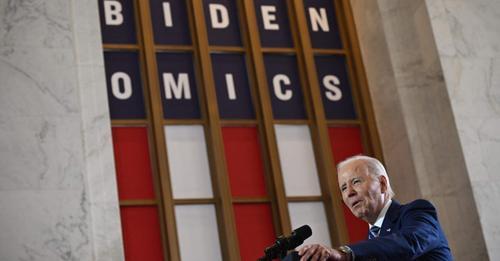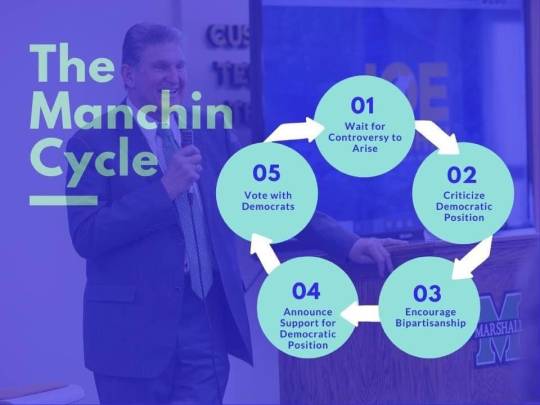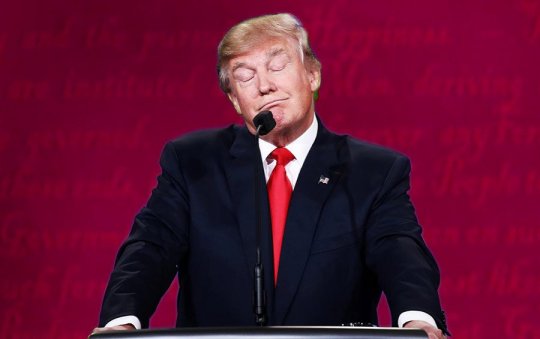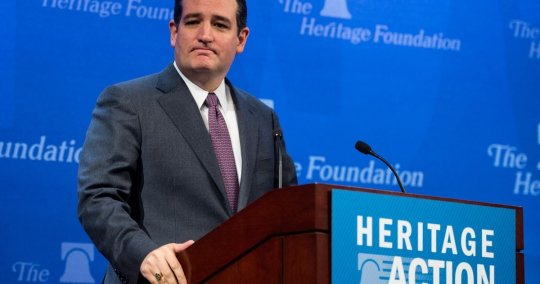#ACA Joes Ad
Explore tagged Tumblr posts
Text
Hands up who's heard of TOM LICHTENHELD?
In the late 80s, I discovered a discount bookshop on Shaftesbury Avenue, amongst the junk, ‘Knitting For The Whole Family’ and ‘Fun With Chives’ were piles American advertising books I’d never heard of; One Show Annuals. They were dirt cheap – £4.99. For the cost of one D&AD Annual I could buy six One Shows. So I bought six One Shows. The work was a revelation. Bolder, funnier and less genteel…

View On WordPress
#&039;Fortunately#32 WFLD ads#ACA Joes Ad#Ameritech ad#Amoco Motor Oil Ad#Arty Tan#BMW ad#Bob Barrie#Bringer&039;s Ad#Bruce Bildsten#Cease Fire Ad Campaign#Claire Burke Ad#Clint Eastwood advert#Continental Illinois ad#Country Kitchen Ad#D&AD#Elvis Advert#Every day comes with an evening&039;#Fallon McElligott#Fleetham&039;s Furniture Stor Sale ads#George Gier#HHartmann Platt & Associates#Jamie Barratt#John Stingley#Kron TV ad#Lee Jeans Advertising#Letterworx Typography Ad#Luke Sullivan#Marilyn Monroe Advert#Middlefort Clinic
0 notes
Text
Will Bunch at The Philadelphia Inquirer:
The most wildly misunderstood yet commonly used word in American politics is “gaffe.” The dictionary defines it as “an unintentional act or remark causing embarrassment to its originator; a blunder” — and that’s not wrong. But on the campaign trail, 95% of the time a much-talked-about “gaffe” is the blunder of a politician accidentally blurting out the truth. You’ve been hearing a lot about Donald Trump’s disastrous, Nazi-echoing rally at Madison Square Garden, and “comedian” Tony Hinchcliffe’s vote-killing “jokes” about Puerto Ricans and African Americans, and that’s been a game-changing development. But over the last week, it’s also been open-mic night for the Republicans who want to run Congress, and the embarrassing blunder of accidental truth-telling has been coming faster than Henny Youngman one-liners. Election Day will tell whether the joke is on the GOP, or on the American people for electing them.
[...] In fact, the current GOP House Speaker Mike Johnson, with a 50-50 chance of clinging to that job next January, has been barnstorming America in a festival of truth-telling “gaffes,” including the revelation that his party dreams of not just gutting Obamacare — as McCormick suggested on that hot mic — but repealing the ACA altogether. This despite Trump’s September debate admission that after a decade of talking about this, he only has “concepts of a plan” (and in reality he doesn’t even have that) on how to replace a program that has saved thousands of American lives.
“No Obamacare,” Johnson responded to a voter’s comment during a news conference in Pennsylvania, before suggesting that Republicans, if it’s in their control, will make major but totally unspecified changes to a program that is broadly popular with the American public while currently insuring more than 21 million. He added: “The ACA is so deeply ingrained, we need massive reform to make this work, and we got a lot of ideas on how to do that.” Yeah, sure, Mike. But like Bluto in Animal House, the House speaker was now rolling. Only a day or so later, campaigning for an embattled House ally in upstate New York, Johnson replied to a student journalist from Syracuse University asking if Congress would also repeal 2022′s bipartisan CHIP and Science Act, which is aiding an $100 billion new plant in that New York candidate’s district creating thousands of new jobs. “I expect that we probably will but we haven’t developed that part of the agenda yet — we gotta get over the election first,” Johnson said.
This time, Johnson soon realized that he’d gone too far even for today’s Republicans, and he rolled back the comment with the hard-to-believe claim that he’d misheard the clearly audible student journalist just a few feet away. But while the semiconductor-aid program, and its large-scale job creation, appear to be safe for now, we should take Johnson, McCormick and their colleagues seriously, if not always literally. To reach their true spiritual goal of taking America back to a time when white men like them ruled without challenge — not only on Capitol Hill but in every household — they are willing to willy-nilly repeal anything passed not just by President Joe Biden but LBJ and maybe even FDR. They want to bring back an uneven playing field for women, Black and brown folks, or the LGBTQ community, even if it also hurts the white middle class they claim to be representing.
Is it a gaffe that we’re learning in the campaign’s final hours that Team Trump plans to give enormous power over public health policy to former-candidate-turned-Trump-ally and anti-vaccine nutjob Robert F. Kennedy Jr., who tweeted Saturday night that he literally wants to take America back to the 1950s by removing fluoride — which has improved the dental health of U.S. children for decades — from public drinking water. Make all the jokes you want about the John Birch Society or Gen. Jack D. Ripper in Dr. Strangelove, but — just like Hinchcliffe’s MSG put-downs of Latinos and Black people — their push to unravel modern American progress is no laughing matter. Voters understand RFK Jr.’s words are serious because we’ve already seen in one hugely important area — reproductive rights — what happens when the barking dog of GOP policy nonsense actually catches the car. The Trump-fried U.S. Supreme Court’s 2022 reversal of Roe vs. Wade has taken women’s health care back more than 60 years, and now we are learning the stories of the women who are dying as a result. How many more Americans will die needlessly if Johnson, McCormick, Trump and their ilk keep driving their 1950s Rambler policies off the cliff?
[...] The GOP’s 11th-hour policy truth bombs aren’t getting the media attention they deserve. They are competing with the increasingly racist, violent and unhinged rhetoric from Trump’s allies but especially from the 78-year-old candidate himself, who seems to be descending into madness in what, either way, are (probably) his last days ever on the trail. We should be paying great attention to events like his nearly six-hour Manhattan hatefest. But understand that the cruelty is the point of the modern MAGA movement, and Trump’s despicable language and attitudes toward women and nonwhite men will be translated on Capitol Hill into cruel policies — political neutron bombs that will devastate everyone, even the folks lining up in Appalachia or the prairies of the Great Plains to vote for Trump.
Will Bunch delivers a truthbomb in his latest Philly Inquirer column that the GOP’s deranged quest to repeal CHIPS Act and Obamacare, along with pandering to anti-fluoride cranks, will doom them.
See Also:
HuffPost: Republicans Close Out Final Week Of 2024 Race By Saying The Quiet Part Out Loud
#119th Congress#CHIPS Act#Obamacare#Patient Protection and Affordable Care Act#Obamacare Repeal#2024 Elections#2024 US House Elections#2024 Presidential Election#Mike Johnson#Robert F. Kennedy Jr.#Will Bunch#The Philadelphia Inquirer
10 notes
·
View notes
Text
Manila, Philippines — VoicePlay & Rachel Potter live performances

When VoicePlay and their buddy Rachel Potter released their "Moana medley" video in the summer of 2017, it went a bit viral and brought them a number of new fans, especially among young kids and their parents. A year later, one of those families invited the six singers to perform at their daughter's birthday party in Manila, with the added incentive of a public show for more of their Filipino fans. A trip to the other side of the world was an opportunity they weren't about to pass up. Even if it did require a full day of travel each way, everyone agreed that the experience was well worth it.
.
youtube
VoicePlay knows how to start a show with a bang, and this song gives each member a moment to shine.
Details:
title: Any Way You Want It
original performers: Journey
written by: Steve Perry & Neal Schon
arranged by: Geoff Castellucci
performance date: 18 August 2018
.
youtube
The boys kept the good times going with some bouncy prog rock and a little audience participation.
Details:
title: Mr. Blue Sky
original songs / performers: "Mr. Blue Sky" by the Electric Light Orchestra (ELO); [1:03] "Blue Skies" by Ben Selvin & Charles Kaley (as The Knickerbockers)
written by: "Mr. Blue Sky" by Jeff Lynne; "Blue Skies" by Irving Berlin
arranged by: Geoff Castellucci
performance date: 18 August 2018
.
youtube
Next up was a more modern groove that let the fellas show off their harmonies and diction.
Details:
title: Ride
original performers: Twenty One Pilots
written by: Tyler Joseph
arranged by: Geoff Castellucci
performance date: 18 August 2018
.
youtube
VoicePlay kept things a little mellow for one more number with the first song that this lineup recorded together.
Details:
title: Scars To Your Beautiful & All Time Low mashup
original songs / performers: "Scars to Your Beautiful" by Alessia Cara; "All Time Low" by Jon Bellion (see also: acoustic version) [NOTE: The original lyrics are more explicit than VP's version.]
written by: "Scars to Your Beautiful" by Alessia Cara, Warren "Oak" Felder, Sebastian Kole, Andrew "Pop" Wansel, & Justin "DJ Frank E" Franks; "All Time Low" by Jon Bellion, Mark Williams, Raul Cubina, & Travis Mendes
arranged by: Layne Stein & Hannah Juliano
performance date: 18 August 2018
.
youtube
Their cover of Disney music was what brought the guys to the Philippines, so it was only natural for them to include this energetic mashup of the Mouse's Broadway tunes.
Details:
title: aca-Disney medley
original songs / performers: "Kiss the Girl" by Titus Burgess as Sebastian in The Little Mermaid (2008); "All About That Bass" by Meghan Trainor; [0:24] "A Whole New World" by Adam Jacobs & Courtney Reed as Aladdin & Jasmine in Aladdin (2014); "Rude" by Magic!; [0:53] "I Just Can't Wait to Be King" by Scott Irby-Ranniar, Geoff Hoyle, & Kajuana Shuford as Simba, Zazu, & Nala in The Lion King (1997); "Trumpets" by Jason Derulo; [1:34] "Seize the Day" by the cast of Newsies (2012); [1:41] "Arabian Nights" by James Monroe Iglehart as the Genie and the cast of Aladdin (2014); "Fireball" by Pitbull, featuring John Ryan
written by: "Kiss the Girl" by Howard Ashman & Alan Menken; "All About That Bass" by Meghan Trainor & Kevin Kadish; "A Whole New World" by Alan Menken & Tim Rice; "Rude" by Magic!, Adam "Messy" Messinger, & Alex Tanas; "I Just Can't Wait to be King" by Elton John & Tim Rice; "Trumpets" by Jason Derulo & Jon Bellion; "Seize the Day" by Alan Menken & Jack Feldman; "Arabian Nights" by Alan Menken & Tim Rice; "Fireball" by Armando "Pitbull" Perez, "John the Blind" Ryan, Andreas Schuller, Ricky Reed, Joe Spargur, Tom Peyton, & Ilsey Juber
arranged by: VoicePlay
performance date: 18 August 2018
.
youtube
The reason Rachel wasn't on The Sing-Off with the boys back in 2013 is that she had already been selected for The X-Factor, and this is the song that got her there.
Details:
title: Somebody to Love
original performers: Queen
written by: Freddie Mercury
arranged by: Rachel Potter
performance date: 18 August 2018
.
youtube
This video contains two songs, each with a new performer in a featured role. For the first, J.None steps into Tony's Phantom shoes. For the second, Rachel picks up the torch of self-love from Emoni Wilkins.
Details:
title: Phantom of the Opera
original performers: Sarah Brightman as Christine Daaé & Michael Crawford as the Phantom in The Phantom of the Opera (1986)
written by: Andrew Lloyd Webber, Charles Hart, Richard Stilgoe, & Mike Batt
arranged by: Layne Stein
performance date: 18 August 2018
.
title: I Love Me
original performers: Meghan Trainor, feat. LunchMoney Lewis
written by: Ricky Reed, Gamal "LunchMoney" Lewis, Jacob Kasher Hindlin, Meghan Trainor, & Thomas Troelsen
arranged by: Layne Stein
performance date: 18 August 2018
.
youtube
The three pieces in this video are all fan favorites that show off the guys' skills and sense of humor, and are sure to get your toes tapping.
Details:
title: Elvira
original performers: The Oak Ridge Boys
written by: Dallas Frazier
arranged by: Geoff Castellucci
performance date: 18 August 2018
.
title: Percussion solo
original performer: Layne Stein
written & arranged by: Layne Stein
performance date: 18 August 2018
.
title: A Crimpella
original songs / performers: [6:12] "Walk the Dinosaur" by Was (Not Was); [6:24] "Witch Doctor" by Alvin & the Chipmunks; [6:31] "Chitty Chitty Bang Bang" from Chitty Chitty Bang Bang; [6:35] "We Go Together" from Grease!; [6:42] “Motownphilly” by Boyz II Men; [6:50] "Imma Be" by the Black Eyed Peas; [6:59] "Tutti Frutti" by Little Richard; [7:01] "Shoop" by Salt N Pepa; [7:06] "Jock-A-Mo" (aka "Iko Iko") by James "Sugar Boy" Crawford; [7:15] "Mahna Mahna" from The Muppet Show; [7:26] "Lovin, Touchin, Squeezin" by Journey; [7:50] "Goofy Goober Rock" from The SpongeBob SquarePants Movie; [7:53] "MMMBop" by Hanson; [8:05] "Hooked on a Feeling" by Blue Swede; [8:09] "Bawitdaba" by Kid Rock; [8:14] "Breaking Up Is Hard to Do" by Neil Sedaka; [8:22] "Bohemian Rhapsody" by Queen; [8:36] "Bad Romance" by Lady Gaga; [8:42] "Can't Get You Outta My Head" by Kylie Minogue; [8:48] "Limbo La La" by James Lloyd; [8:51] "All Night Long" by Lionel Richie; [9:10] "Wanna Be Starting Something" by Michael Jackson; [9:16] "Na Na Hey Hey Kiss Him Goodbye" by Steam
arranged by: VoicePlay
performance date: 18 August 2018
.
youtube
It would've been a shame to leave out VP's very first collaboration with Rachel, especially since it gave the crowd a chance to hear Layne tackle that rapid-fire rap verse.
Details:
title: I Knew You Were Trouble / As Long As You Love Me
original songs / performers: "I Knew You Were Trouble" by Taylor Swift; "As Long As You Love Me" by Justin Bieber, featuring Big Sean; "All Around the World" by Justin Bieber, featuring Ludacris
written by: "I Knew You Were Trouble" by Taylor Swift, Max Martin, & Karl "Shellback" Schuster; "As Long As You Love Me" by Justin Bieber, Nasri Atweh, & "Big Sean" Anderson; "All Around the World" by Justin Bieber, "Sir Nolan" Lambroza, & Nasri Atweh
arranged by: Layne Stein & Hannah Juliano
performance date: 18 August 2018
.
youtube
They had to cap things off with the medley that resulted in them going to Manila, and it certainly makes a fantastic ending. It's also fun to see how they adjusted the arrangement to integrate J.None and create a fuller sound in a live setting.
Details:
title: Moana medley
original songs / performers: "Where You Are"; [0:46] "How Far I'll Go"; [1:47] "You're Welcome"; [2:54] "Shiny"; [3:54] "Know Who You Are"; [4:36] "How Far I'll Go (reprise)"; [4:55] "We Know the Way" by the cast of Moana (2016)
written by: Lin-Manuel Miranda, Mark Mancina, & Opetaia Foa'i
arranged by: Layne Stein & Hannah Juliano
performance date: 18 August 2018
.
Additional photos













[Geoff isn't in the meet-and-greet photos because the poor guy had food poisoning and needed to go sit down after they finished singing.]
.
Private party




5 notes
·
View notes
Text
A lot of people were surprised two weeks ago when Donald Trump started posting on social media about trying to repeal the Affordable Care Act. I certainly was.
The attempt to wipe out “Obamacare” in 2017 was one of his administration’s most spectacular policy failures, and one of its most damaging political failures too. The backlash to the unpopular effort was a big reason Democrats took back the House in 2018. Two years later, it helped put Joe Biden in the White House, while giving Democrats a narrow hold on the Senate as well. A sensible, thoughtful politician mindful of that experience would do everything to avoid the subject altogether. Or, if they were truly committed to the repeal cause out of principle, they would return to it only after developing a well-considered strategy to succeed where the last attempt failed.
Suffice to say it does not appear Trump did that.
The likely backstory, according to a report in Politico, is that a Wall Street Journal editorial on the Affordable Care Act “piqued his frustration” with the program, enough that he decided to post on Truth Social that he was “seriously looking at alternatives” to Obamacare and imploring fellow Republicans to “never give up” on trying to get rid of the law.
Trump’s own advisers didn’t seem to expect the post, based on the Politico story, and Republicans in Congress certainly didn’t. In the days that followed, they made clear their reluctance to try repeal again ― in no small part, I’m sure, because so many of them were around last time and remember how that all turned out.
Sen. Chuck Grassley, Iowa Republican and senior Finance Committee member, told a local radio station that “I don’t hear any Republicans talking about it.” His GOP colleague from South Dakota, Majority Whip John Thune, offered similar thoughts to Politico: “Boy, I haven’t thought about that one in a while.” Translation: “Are you f**king kidding me?” Their ambivalence makes even more sense given that repealing the Affordable Care Act now would likely be more difficult than it was in 2017, when the then-fledgling program’s widely publicized implementation problems ― like the catastrophic rollout of the HealthCare.gov online shopping site, or insurers pulling out of markets because they were losing so much money ― made it an easy target for political attacks.
Six years later, the website works great, insurers have figured out how to offer a profitable product and the markets are stable. People buying coverage on their own can have access to lower premiums and out-of-pocket costs because Biden and the Democrats have added to the program’s financial assistance.
That’s one reason that, relative to 2017, even more people are getting insurance through the program. Another is that voters in conservative states like Idaho and Missouri have since approved Medicaid expansions that their state Republican officials had been blocking, adding hundreds of thousands to the long list of Americans with something to lose if Obamacare goes away.
In short, the program is a lot more entrenched than it was before ― and, as the polls show, a lot more popular too. Just this week, a new Navigator survey found support for the Affordable Care Act at 61%. That’s the highest the poll ever recorded, and consistent with findings from the KFF monthly poll, which has been tracking support for the Affordable Care Act since it first became law in 2010. All of that makes it tempting to dismiss the threat of repeal ― and significance of the issue more generally. But that would be a mistake.
10 notes
·
View notes
Text

Chris Hayes: “This is one of the most impressive macroeconomic interventions in recent American history—and if we end up in 2024 with these trends continuing, Joe Biden has one of the best economic stories to tell of any president in the last century.” Yes. The bottom line is that America right now has the best performing economic it has had since Dwight David Eisenhower was president—yet very few Americans have an inkling of this fact. They're all concerned about inflation and a recession that aren't happening.
* * * *
Bidenomics is the new Obamacare.
ROBERT B. HUBBELL
JUN 29, 2023
Part of the GOP effort to disparage the Affordable Care Act (ACA) was to tie the program specifically to President Obama by creating the label “Obamacare.” Originally intended as an insult, “Obamacare” has now become synonymous with “access to health insurance.” Although Republicans have stubbornly refused to acknowledge the success of Obamacare (even as they depend on its benefits), “Obamacare” is now viewed favorably by 60% of all American adults—the high-water mark for almost any policy in our fractious society. See KFF Health Tracking Poll: The Public’s Views on the ACA.
So, too, with “Bidenomics”—a term created by Republicans to tie Biden to inflation and high gas prices. But as the economy has continued a historic stretch of expansion and improvement—especially for middle-class Americans, Biden has embraced the term “Bidenomics” as a badge of honor. As they say, “Eighty is the new sixty” and “Bidenomics is the new Obamacare.”
On a day when President Biden gave a major speech in Chicago embracing the term Bidenomics, the White House released a brag sheet entitled, “Bidenomics Is Working: The President’s Plan Grows the Economy from the Middle Out and Bottom Up—Not the Top Down.” The press release described Bidenomics as follows:
[Bidenomics] is an economic vision centered around three key pillars:
Making smart public investments in America
Empowering and educating workers to grow the middle class
Promoting competition to lower costs and help entrepreneurs and small businesses thrive
While our work isn’t finished, Bidenomics is already delivering for the American people. Our economy has added more than 13 million jobs—including nearly 800,000 manufacturing jobs—and we’ve unleashed a manufacturing and clean energy boom. There were more than 10 million applications for new small businesses filed in 2021 and 2022—the strongest two years on record. America has seen the strongest growth since the pandemic of any leading economy in the world. Inflation has fallen for 11 straight months and has come down by more than half. And we have done it all while responsibly reducing the deficit. President Biden believes in a fundamentally different approach. Under Bidenomics, he has proven that we can make smart investments in the American people while reducing the deficit by ensuring the wealthy and large corporations pay their fair share in taxes, closing wasteful tax loopholes, and slashing wasteful spending on special interests.
It is worth ten minutes of your time to read the entire press release—its content will become the substance of Biden’s campaign pitch for 2024.
Dan Pfeiffer of Pod Save America posted an analysis with charts and graphs in an accessible, shareable format. See Dan Pfeiffer, The Message Box, The Biden Economy: What You Need to Know. Pfeiffer distills Bidenomics to the following:
Inflation is down.
Jobs are up.
Manufacturing is back.
Consumer confidence is up.
Republicans want more tax cuts for the wealthy.
E.J. Dionne Jr. penned an op-ed in WaPo that described the quiet revolution of Bidenomics, If ‘Bidenomics’ works, it will be a very big deal. Dionne writes:
“President Biden might not seem like a revolutionary, but he is presiding over a fundamental change in the nation’s approach to economics. Not only is he proposing a major break from the “trickle-down” policies of Ronald Reagan, as Biden highlighted in a speech in Chicago on Wednesday. He is also departing from many orthodoxies that shaped the presidencies of Democrats Bill Clinton and Barack Obama. “Government is no longer shying away from pushing investment toward specific goals and industries. Spending on public works is back in fashion. New free-trade treaties are no longer at the heart of the nation’s international strategy. Challenging monopolies and providing support for unionization efforts are higher priorities.
“On Wednesday [in his Chicago speech], he stressed they are producing well-paying jobs for those who have been on the short end of economic growth: Americans without college degrees and those living in places with “hollowed out” economies.”
One sure sign that Bidenomics is working is that Republicans who opposed Biden’s signature legislative achievements are now trying to take credit for those accomplishments. Republican Senator Tommy Tuberville tweeted to his constituents,
“Broadband is vital for the success of our rural communities and for our entire economy. Great to see Alabama receive crucial funds to boost ongoing broadband efforts.”
Senator Tuberville twice voted against the Biden bill containing funds for broadband in rural areas. President Biden responded to the Tuberville tweet with his own tweet, saying “See you at the groundbreaking.”
Despite the successes of Bidenomics, it is difficult for the slow work of rebuilding the economy to rise above the daily drama of Russian rebellions, Trump indictments, and new tragedies involving the Titanic. Each of us should help spread the word of Biden’s successes. Sharing Dan Pfeiffer’s article (above) is a good place to start. And Simon Rosenberg’s Hopium Chronicles is always a reliable source of data and talking points relating to Democratic successes. Don’t be shy about sharing the good news of Bidenomics!
[Robert B. Hubbell]
3 notes
·
View notes
Text

I donate to liberal candidates sometimes, so I'm on like 80 campaign email lists that go straight to the "promotions" folder of my inbox and sit there unread forever, not even really worth the effort of unsubbing from. But I got one today with the subject "Unified Reich", in reference to Trump tweeting a campaign ad where he promised to create a unified reich in America.

It was in the small background text and he's acting like it was an accident even though that would also be bad yadda yadda. But it occurred to me how unusual it is for these emails to contain any, like, reason to vote for Biden or even against Trump. Maybe they assume anyone who's donated to Democrats is a lock, but I went and counted my last fifty campaign emails. Not just the headlines, I opened them and skimmed them to see the messages they're sending out. By my count, it's
Specific Anti-Trump Campaign Messages
Trump wants to create a Unified Reich, the latest in his Nazi Rhetoric
Trump says he'll be a dictator, picked three SCOTUS judges who overturned Roe vs Wade, and wants to terminate the Affordable Care Act
Trump wants to destroy the ACA, here's a campaign ad about Biden protecting it which also is a pro-Biden ad but primarily anti-Trump
When I debate Trump I'll talk about Roe v Wade
Trump wants to ban abortion nationwide
Trump is pro-Putin and anti-Ukraine
Trump is anti-democracy and anti-gay
The Supreme Court overturned Roe v. Wade (Trump isn't mentioned, but I'll count it)
Specific Pro-Biden Campaign Messages
Biden challenged Trump to a debate and Trump wilted before Joe Biden's manly virility
Biden has invested in 56,000 infrastructure projects and is fighting for AANHPI communities
Biden called on Trump to debate and they're gonna debate
Biden called on Trump to debate and they're gonna debate
Generic Anti-Trump Campaign Messages (e.g. "Do you want four more years of Trump?")
Do you want four more years of Trump in the white house?
Remember how much Trump sucked?
Remember how much Trump sucked?
"We are out of money" messages that contain no specific pro-Biden or anti-trump lines
Trump raised $76 million in April
We are nowhere near our fundraising goal
There's an FEC deadline coming up
Trump has a lot of money from billionaires
Trump raised $50 million today
We are behind our goal
You donated to me in 2020, why not in 2024?
We are below target
Biden Good, Trump Bad, will you chip in $46?
Literally just the word "$46"
99% of people who see this email don't donate
Biden Good, Trump Bad, will you chip in $46 (this is literally the same email again!)
FEC deadline coming up
Donate now for a chance to meet Obama and George Clooney
Meet George Clooney!
We're in danger of not hitting our fundraising goals
Meet George Clooney
Trump has money
Average donations are down slightly, so we need more donors
Can you give us 46 dollars?
Can you give us 46 dollars?
Meet the Bidens!
It's neck and neck!
We are TIED with Trump in the polls
Fundraising deadline
Fundraising deadline
We need to maintain the blue wall
Trump might win
Here's what we're spending money on
Trump is closing in the polls
Fundraising deadline
Biden might lose
We're not making our fundraising deadline
Here's what we're spending money on
We need more donations from your area
Okay, that's about 70% of Biden's campaign emails that don't have "Biden good" or "Trump bad" even in a vague way. I do get that Democratic donors probably already support Biden and that the point of these emails is to raise money, but Jesus. Personally, if I were running for re-election and had a huge vibes problem, I'd try to find uncontroversial good things to say about myself in my fundraising emails. Real wages are up and the unemployment rate is super-low, for instance. Give my most devoted supporters pro-me talking points to bring up in conversation, y'know?
youtube
Or, like, if my "Trump bad" department recently made a really powerful "Trump bad" ad that went semi-viral in liberal circles for how good it was, I'd be bringing that shit up once a week. Maybe it doesn't pull in quite as much money as the fearmongering, but the whole point of the money is to get your message out.
1 note
·
View note
Text
Codifying means taking the standards of viability as outlined in Roe v Wade and making it a federal law. And no, it wouldn’t be easy to repeal it any more than it would be easy for Republicans to repeal the Affordable Care Act, which they have tried. Many times. And failed. They might be able to pass additional limits, sure. The ACA has been more or less chipped away at over the years and that is very possible with abortion, but it’s still a hell of a lot better than what we have now with regards to reproductive care.
As for the states, a federal law would prevent states from imposing restrictions. The Supremacy Clause of the Constitution establishes that federal supersedes state laws.
The Supreme Court is still a problem, that I won’t argue with. Doesn’t mean Dems shouldn’t pass a federal law though. This should’ve been top priority the very second the Supreme Court draft got leaked, even if there wasn’t a chance of it passing. Dems have this awful habit of not bothering with the fight if they know they can’t win. But there is value to recording the positions of legislators even on failing legislation. Those votes are called out during electoral campaigns all the time.
Biden is being blamed perhaps unfairly in a lot of cases surrounding abortion, but I would argue that this frustration towards the Democratic Party goes back to before Biden. Obama enjoyed a Democratic supermajority in congress during his first term and had specifically promised to codify Roe. Then in March 2009 he decided that passing the Freedom of Choice Act was not his “highest legislative priority.” Biden, having been his VP and heir to party leadership, now gets to endure the ramifications of that lacking priority which continued well past Obama’s terms. In that way, Biden absolutely deserves some blame. The buck stops where, again?
Democrats have absolutely been using abortion as a wedge issue to fundraise upon for years, and the fall of Roe has only added to that paradigm. Am I saying don’t vote for Democrats at all? Of course not, but also consider that this is a good cop, bad cop situation, and it’s up to us to use our vote as a tool to leverage our highest priorities, not a politician’s career. Not to be scolded or scared into voting for the very people who got to enjoy years of comfortable elections off of the backs of dying women and their terrified daughters while doing absolutely nothing for them when they promised they would.
This is not to say there aren’t legislators doing the hard work. There absolutely are. But the fundraising arm of the Democratic Party loves that Roe is gone. Existential threats are great for campaigns.
The issue at hand here is money in politics. There is a straight line connecting Citizens United to the fall of Roe v Wade and Democrats are more involved in that than you might think. Genocide Joe will probably not be getting my vote, but I will vote for whichever legislator has proven themselves to their constituency on the matter of safeguarding reproductive rights. Here is the obligatory reminder that local elections matter and they matter greatly.
I have more to say on Democrats and the real existential threat of Trump that they supposedly fear, but that’s a much longer post and this is about abortion.
It is extremely disturbing how many posts I see claiming that Roe v. Wade was overturned on Biden's watch and blaming him and the Democratic Party for it. It's disturbing on a number of levels.
First, it was Trump and Bush-appointed justices who handed down the Dobbs decision. This is a flagrant example of blaming Democrats for things Republicans did, and not coincidentally is one of the the most widely felt differences between the two parties. As a result, it's usually the first example Democrats and their allies point to; this misappropriation suggests a deliberate attempt to undercut that fact.
Secondly, and related to the first point, it obfuscates who the real enemy is, and I am comfortable using word "enemy" to describe the Republican Party because of the policies they advocate and enact. The truth is that states controlled by the Republican Party were where the effects of Dobbs are most severely felt, while states controlled by the Democratic Party are passing laws to protect abortion. It is important to know which party opposes abortion and which party supports it. If the Republicans gain control of the House, Senate, and White House, they will pass a national abortion ban, as they have done at the state level in several places.
Thirdly, blaming Biden for Dobbs demonstrates a very concerning lack of understanding of how the government functions. The judiciary is its own branch of government; judges are appointed by the president and confirmed by the senate. It doesn't matter who is president when a decision is handed down, it matters who was president when the justices were appointed. People sometimes react to this by moving the goalposts and claiming the real issue was a failure by Democrats to "codify" Roe v. Wade. I am not sure what "codify" means in this context, and I'm not sure they are either. One thing it does not mean is that congress can pass a law saying "abortion is legal forever." Republicans could easily repeal such a law and it the federal government cannot necessarily prevent states from restricting abortion at the state level. Roe v. Wade was a ruling stating that the constitution guaranteed a right to privacy, which included the right to have an abortion. This prevented abortion restrictions in a way federal law cannot. That doesn't mean passing federal law protecting abortion is a bad idea, but it isn't a foolproof protection. It's fair to argue that the Democratic Party and the left of center generally were complacent about abortion. The form of this complacency was not taking the courts seriously, while the right spent fifty years openly filling the courts with anti-abortion judges.
The last thing that worries me is that this is popping up phrased almost the exact same way all over the place. I am afraid that it is not merely incompetence, but intentional misinformation, that is then repeated by the incompetent who believe it.
I know some will probably dismiss this post as being from a "vote harder" liberal Biden supporter, but whatever your feelings about Biden, the Democratic Party, or the democratic process in the U.S., you should care about the truth. The truth is that Roe v. Wade was overturned by Republican-appointed judges and abortion bans are being enacted by Republican elected officials, and Joe Biden opposes these things. You can do with that information whatever you wish, but you denying it is dishonest.
6K notes
·
View notes
Photo


In the New York Magazine article, “The Future of Trumpism: The greatest threat to Donald Trump’s hold on the GOP comes from Ron DeSantis, who may be more MAGA than the MAGA king himself,” Jonathan Chait discusses some of Ron DeSantis’s more disturbing beliefs about the U.S. Constitution and wealth.
Basically, DeSantis seems to believe that the Constitution was designed to protect elite wealth from being redistributed to the working classes. If DeSantis were to be elected president, there’s a good chance he would try to undo every progressive social safety net program we have created since the New Deal, including Social Security, Medicare, Medicaid, the ACA, SNAP, and TANF.
Below are some excerpts from DeSantis’s 2011 book Dreams From Our Founding Fathers: First principles in the age of Obama:
[Benjamin] Franklin and other Founding Fathers believed that respect for individual property rights was the sine qua non of a free society, and regarded the so-called “leveling spirit,” which seeks to equalize property through government action, as a danger that American institutions needed to check…. How to craft a government based on popular consent that did not devolve into popular majorities voting themselves the property of others was one of the main concerns for Madison and his colleagues at the Constitutional Convention. [...] Madison pulled no punches about specifying the particular types of faction that a republican form of government needed to guard against. “A rage for paper money, for an abolition of debts, for an equal division of property, or for any other improper or wicked project”…. Madison…also viewed these “wicked projects” as inimical to fundamental notions of justice and individual liberty. As a matter of first principle, the republic needed to be constructed to prevent such projects from ever coming into being.
[emphasis added]
--Ron DeSantis (2011, pp. 123, 128-129)
If Ron DeSantis wins the White House in 2024 and has a GOP Congress, and a Federalist Society dominated Supreme Court, he will be able to dismantle the social safety net in the U.S. with impunity. We cannot let that happen.

[edited]
____________________
Ron DeSantis Photo-Illustration: Eddie Guy & Photo: Joe Raedle/Getty Images (before edits & title caption); Maya Angelou quote image source (before edits & a newer version of Maya Angelou’s signature)
#ron desantis#dreams from our founding fathers#us constitution#protection of wealth#neofascism#jonathan chait#new york magazine#intelligencer#my edits
183 notes
·
View notes
Text

@heylabodega yes! And sorry, for the long rant lol.
It honestly boils down to Joe Manchin being a Democrat and Lisa Murkowski being a Republican like, when it comes down to the wire, Manchin, like Bernie, votes with Democrats, and Murkowski votes with the Republicans. With the American Rescue Plan for instance, Murkowski got her amendment in (something about seafood processors in Alaska), but she ultimately voted against the bill while Manchin fell in line (albeit after Kyrsten Sinema, Jon Tester, and Joe freaking Biden all implored him to).
Also, Manchin was one of the first elected officials to endorse both Hillary Clinton and Joe Biden (he endorsed Hillary before Bernie iirc), and he voted to convict Trump twice, while Murkowski didn’t endorse either Democrat, and only impeached Trump once, after the insurrection. Manchin’s a big labor guy too like he’s very supportive of unions and he's cosponsored the PRO Act.
Also, even though he’s pro-life, Manchin has voted to preserve Planned Parenthood funding multiple times before, so just for that, he’s leaps and bounds better than 95% of Republicans even without his saving the ACA multiple times (albeit with guns lmao). Like, back in 2017, people were protesting outside Susan Collins' and Lisa Murkowski's and John McCain's houses so they'd vote against the ACA repeal, but nobody had to protest outside Sherrod Brown's or Jon Tester's or Joe Manchin's houses, who are all red state Democrats, not least since Manchin put out this ad! Do I love guns? No. But I like that Manchin voted to save the ACA (multiple times), and this is how he did it.
youtube
This is the Manchin Cycle basically:

Manchin is very performative and annoying at times but he’s also never the deciding vote to tank a Democratic policy! And, the rest of the Democratic caucus that’s to the left of him definitely uses Manchin as a scapegoat when they don’t want to say or do something that they’ll get more flack for than Manchin will because he represents West Virginia and not like, Rhode Island. Even with Manchin tanking Neera Tanden’s nomination for OMB director, he was definitely covering for Bernie who was being mighty petty since Neera’s a huge Hillary Clinton surrogate and supporter and criticized him before, but Bernie would get much more criticism for tanking a nominee of his own party’s president than Manchin because Biden got 66.1% of the vote in Vermont and 29.7% of the vote in West Virginia. That makes sense right?
Like, I hated that Manchin voted for Brett Kavanaugh, but he only did so after Susan Collins and Lisa Murkowski, who voted yes and present on Kavanaugh, ensured Kavanaugh was in no matter how Manchin voted. It was the month before the 2018 midterms when he was up for re-election in a state Trump won by 40 so I get why Manchin ultimately voted for Kavanaugh. And a month later, during the midterms, Heidi Heitkamp, Claire McCaskill, and Joe Donnelly, all red state Democratic senators, lost their seats to Republicans after voting no on Kavanaugh. Manchin won by about 2%, his lowest margin of winning ever, and in all likelihood, Manchin and Jon Tester are toast in 2024 if Trump is on the ballot since Trump draws out low-propensity Republicans, and Sherrod Brown’s got an uphill fight. And, it’s only because Manchin and Tester barely eked out wins in states that voted for Trump by ~40 and ~20 respectively that we even have a 50-50 Senate at this point, which isn’t sustainable at all.
Anyways, like I always say, Democrats need to figure out how to stop losing white non-college voters so badly because our major losses with that demographic make it nearly impossible for us to hold the Senate, and those losses are also why Biden was barely 40,000 votes across Wisconsin, Arizona, and Georgia from a 269-269 electoral college tie with a 6-3 Supreme Court.
And finally, this is a great and very catchy song:
youtube
12 notes
·
View notes
Text
VOTE BLUE
Nothing will make Medicare-4-All or at least a public option more likely than the Supreme Court gutting the ACA. Nothing will make Court packing more likely than breaking the preposterous “Garland Rule” two weeks before America votes in a landslide for Joe Biden to pick liberal Supreme Court justices. Nothing will make a GOP midterm Tea Party 2.0 more irrelevant than overturning Roe V. Wade and taking away bodily autonomy from the majority of Americans. Nothing will make replacing the filibuster and adding DC and PR as states more likely than McConnell again using Senate minority power in cynical bad faith. There’s a reason Republicans are fawning over a racist demagogue and claiming all of a sudden that America isn’t a democracy, and it’s because they know they barely cling to power with gerrymandering, voting rights disenfranchisement, and an Electoral College dominated by small states who have 1/40th the population of California but still get two senators.
74 notes
·
View notes
Text
Why Do Republicans Lie About Everything
New Post has been published on https://www.patriotsnet.com/why-do-republicans-lie-about-everything/
Why Do Republicans Lie About Everything

Which Came First: Republican Hate Or Gop Misinformation
Do Honest Republicans Still Exist?
Hate is a great motivator. All political parties have used it to get out the vote. Generally, those who seek elected office shape information in a way that helps a certain voting block hate their opponent. Thats how we elect people in America. That is a sad reality we just have to accept in order to fix it. Hope doesnt fix it.
Whats unique and new about negative politics in the post-Obama era is that we have this thing called the Internet and dare I acknowledge itSocial Media. ;Social media has completely isolated the Republican Party base. The Internet and social media have created hard-edged, isolated buckets of information where facts dont matteragreement;and emotion matter. For republicans, agreement with their own bias is considered fact, whereas disagreement is a lie they literally transform reality to support their own opinion: the Post-Truth Era. In order to maintain that alternate reality, they have to hate those who dont agree, otherwise their reality bubble starts to break apart.
This is the case on both sides of the aisle, but the hardliners have taken it to a new level, which is why they seem to hate everything. Theyre even taught to hate things that help them like the ACA, unions, and public education.
Social media and 1000 cable channels dont increase the information we receive they focus the information and repeat it 1000 times more often. Anything can become the truth when its repeated enough times.
The Big Lie Is Gop Gospel
Cheney is not alone in suffering consequences for challenging Trumps allegations.
Georgia Secretary of State Brad Raffensperger, who defended the states counting process against Trumps attempts to interfere with it, was stripped of his voting power on the State Election Board as part of Georgias new voting restrictions law.
In a special House election in Texas held on in early May, the Trump-critical Republican in the race Michael Wood got 3 percent of the vote.
In January, Michigan Republicans removed Aaron van Langevelde, a GOP attorney who broke with the party to certify Bidens victory in Michigan, from his post on the states Board of State Canvassers.
At the Utah Republican Partys convention this weekend, Sen. Mitt Romney perhaps the GOPs leading Trump critic was booed and called a traitor.
At the same time, Republicans who have embraced falsehoods about the election have been elevated.
Rep. Elise Stefanik , who appears likely to replace Cheney in the No. 3 spot, backed Trumps anti-election efforts to the hilt. Most egregiously, she falsely asserted that there were 140,000 illegal votes in Georgias Fulton County alone which would amount to more than 25 percent of all the votes in the entire Democratic-leaning county. The breakout Republican stars in the House of Representatives, Reps. Marjorie Taylor Greene and Lauren Boebert , both egged on the January Stop the Steal rally that culminated in the attack on Capitol Hill.
Why Do Conservatives Soak Up Lies
The evidence that conservatives crave lies is abundant.
Conservatives loved George W. Bush’s and Dick Cheney’s lies about “Saddam’s weapons of mass destruction” — loved them so much, that the researchers who wrote “‘There Must Be a Reason’: Osama, Saddam, and Inferred Justification” surveyed 49 conservative Republicans, during October 2004, who admitted that they still believed Saddam Hussein had caused the 9/11 attacks, and these researchers found that 48 of those 49 extreme conservatives were entirely impervious to the overwhelming factual evidence that was provided to them by the presenters contradicting this false belief they held. Then, a showed that when Republicans were offered the official 2004 Duelfer report that had concluded Iraq hadn’t possessed any weapons of mass destruction for years before the United States invaded it in 2003, the percentage of Republicans who believed that Iraq did have WMD immediately prior to the invasion shot up, instead of going down . Even all of the exposés that had already been published about Bush’s faked WMD “proofs” didn’t persuade Republican voters that they’d simply been deceived by the people they trusted and supported. They didn’t resent it at all; they just asked for more, from those same discredited liars.
So: why do conservatives sop up lies, on topic after topic?
They do it because, if they didn’t, they couldn’t be themselves; they couldn’t be conservatives. Lie-lovers is whom they are. It’s their identity.
———-
Don’t Miss: Have Democrats Tried To Impeach Every Republican President
The Gop Elite Gave Us This Party
This dire outcome was not inevitable: The best evidence we have suggests that the rise of the Big Lie is the direct result of strategic choices by Republican leaders.
A new paper by Dan Hopkins, a political scientist at the University of Pennsylvania, analyzes data from a panel survey, which looks at roughly the same group of people over time, running between 2007 and 2020. The survey asked people to rate the fairness of the US electoral system on a scale of 1 to 5, and tracked the changes over time.
What they found was a striking consistency: Support for the American system is both high and reasonably stable when assessed via this measure, Hopkins writes. Though there are some fluctuations, with partisans evaluating the system as somewhat less fair when the other party is in power, generally theyre small.
Hopkinss last survey wave was in October 2020 which means the results dont reflect the false allegations lobbed in the aftermath of Bidens victory. The stability documented here was very likely shattered by Trumps post-election actions, Hopkins concludes.
Other data confirm this supposition. A report from the Voter Study Group analyzed Pew surveys, conducted after every presidential election since 2004, on whether voters thought their vote was counted fairly. You see the same general stability documented in Hopkinss paper, with a majority of voters in both parties saying they were very confident their vote was counted accurately in every year except 2020:
Republicans Have A Good Reason Not To Want To Investigate Jan 6: Theyre To Blame


To revist this article, visit My Profile, then View saved stories.
Save Story
To revist this article, visit My Profile, then View saved stories.
Our nations preeminent bipartisanship fetishistsJoe Manchin, Susan Collins, and Lisa Murkowskiare deeply disappointed that they cant get Republicans to back an investigation into the January 6 attack on Capitol Hill. Indeed, they seem outright baffled that their efforts at compromise have fallen short on plans for a bipartisan panel. There is no excuse for any Republican to vote against this commission since Democrats have agreed to everything they asked for, Manchin said in an angry statement on Twitter. It would be so much better if we had an independent outside commission, Collins, a moderate Republican, told reporters Thursday. Is that really what this is about, one election cycle after another? added Murkowski, blasting Mitch McConnells anticipated filibuster. Or are we going to acknowledge that as a country that is based on these principles of democracy that we hold so dear, and one of those is that we have free and fair elections.
I kind of want that to endure beyond just one election cycle, the Alaska moderate Republican told reporters.
Twitter content
More Great Stories FromVanity Fair
Recommended Reading: Did Trump Really Say Republicans Are Stupid
In 2009 Republicans Predicted That The Economic Stimulus Package Would Only Make The Recession Worse And Cause More Unemployment
The results show they couldn’t have been more wrong. The American Recovery and Reinvestment Act of 2009 ended the recession after only a few months. Although 750,000 people were losing their jobs each month when Obama took office, after the Recovery Act was passed the rate of job loss immediately decreased each month and within a year the economy showed positive job growth.
Considering the severity of the 2008 economic collapse and the total opposition by Republicans to do anything at all to stimulate the economy, it is remarkable that the US economy recovered as quickly as it did.
Looking at the rate of job loss and job creation, its easy to see that the stimulus of 2009 was highly successful in stopping the job losses and turning the economy around.
Republicans Predicted That We Would Find Iraqs Weapons Of Mass Destruction Even Though Un Weapons Inspectors Said That Those Weapons Didn’t Exist
The Bush administration continued to insist that WMDs would be found, even when the CIA said some of the evidence was questionable. As we all know, the WMDs predicted by the Bush administration did not exist, and Saddam Hussein had not resumed his nuclear weapons program as they claimed. Ultimately, both President Bush and Vice President Cheney had to admit that there were no weapons of mass destruction in Iraq.
Don’t Miss: Who Is Behind Republicans For The Rule Of Law
Republicans Said President Obama Would Raise Taxes Sky High
It never happened. Income taxes for over 95% of Americans remained the same or lower than they were before Obama was elected. The only people whose income taxes increased were those who make more than $400,000 per year, and their taxes rose only 3%. For most Americans, taxes are still lower now than they were under Reagan.
In 1993 When The Brady Law And The Assault Weapons Ban Were Passed Republicans Predicted Increasing Rates Of Crime And Murder
Republicans Are Lying To Themselves About Trump’s Toxicity
Thankfully, just the opposite happened. While the rate of violent crime had increased steadily from the 1970s into the 1990s, it suddenly began to drop after 1993 and continued to decline for more than ten years. What could have happened in 1993 to precipitate such a sudden and prolonged drop in crime? Thats the year Congress passed the Assault Weapons Ban and the Brady Law, which mandated background checks and a waiting period to buy a gun.
Despite Republican predictions to the contrary, the Brady Law and the Assault Weapons Ban were followed by the most dramatic reduction in violent crime since the FBI started keeping statistics. The graphs below, based on the actual numbers from the FBI Uniform Crime Reports website, show how the rates of murder and violent crime in the US dropped suddenly after the 1993 Brady Law and Assault Weapons Ban were passed.
These charts show the rate of murder and violent crime over 35 years based on numbers from the FBI Uniform Crime reports.
Recommended Reading: How Many Republicans Voted For Obamacare In The Senate
Here Are A Few More Things Republicans Have Been Wrong About:
Republicans said that Obamacare would have death panels to decide who would live and who would die. Wrong. No such death panels were ever proposed and nothing of the kind ever happened.
They said the 2009 laws to improve automobile fuel efficiency standards would kill the US auto industry. Wrong. The new standards were followed by a resurgence of the US auto industry enabling them to hire back tens of thousands of workers.
They said environmental protection laws requiring companies to clean up their pollution would create an undue burden and kill businesses. Nope, it never happened.
They said Ebola would spread across the country because President Obama allowed American Ebola patients to be treated in the US. The outbreak never happened. Only three people contracted Ebola in the US and all three survived.
They said President Obama would open our borders to illegal immigrants. Wow, were they wrong about that. Under Obama, we set new records for most illegal immigrants stopped at the border and sent home.
They said Obama would drive up the Federal budget deficit. That didn’t happen. Obama cut the $1.4 trillion deficit he inherited by two-thirds.
While someone could no doubt find instances where Democrats engage in over-the-top rhetoric, nothing compares to the consistently false and erroneous claims made by the GOP in recent years. When a political party has been so dismally wrong about nearly everything over the past 30 years, that party should lose all credibility.
‘nothing There’: More Republicans Are Calling Out Trump’s Election Lies
WASHINGTON The more we learn about Donald Trumps baseless, false and discredited claims about the 2020 election, the more baseless, false and discredited those claims have become.
Just consider the revelations over the past week from Republicans:
In Michigan, a GOP-led investigation by its state Senate concluded that it found no evidence of widespread or systematic fraud in Michigans prosecution of the 2020 election.
Regarding Arizona, a report co-authored by former Kentucky Secretary of State Trey Grayson criticized the so-called audit of the election results in that state, saying it does not meet the standards of a proper election recount or audit, and that its being conducted by an inexperienced, unqualified contractor.
And over the weekend, ABCs Jon Karl writing for the Atlantic had former Trump Attorney General Bill Barr debunking Trumps claims about the 2020 election results. If there was evidence of fraud, I had no motive to suppress it. But my suspicion all the way along was that there was nothing there, Barr said. It was all bullsh!#.
Predictably, Trump lashed out at those GOP findings.
Michigan State Senators Mike Shirkey and Ed McBroom are doing everything possible to stop Voter Audits in order to hide the truth about November 3rd, the former president said in a statement, which even included those state senators phone numbers.
Even Bill Barr doesnt buy them.
Read Also: Who Won The House Republicans Or Democrats
Get Ready For Another Possible Crisis Like 2020
This is not the first time that Republicans have declared a Democratic president somehow illegitimate. They impeached Bill Clinton on flimsy grounds, after previously accusing him of crimes ranging up to murder; there was a widespread campaign to label Barack Obama an unlawful foreign-born president . These campaigns were effective: A 2019 poll found that 56 percent of Republicans still believed that Obama was born in Kenya.
Nor is this the first time Republican elites have ginned up suspicion of voter fraud for political purposes. After Republicans won a series of statehouse elections in 2010, they spent the next few years falsely claiming that voter fraud was a serious threat in order to pass voter ID laws that were nakedly designed to suppress the vote among Democratic-leaning minority groups. Research has found that, even prior to Trump, this convinced Republicans that voter fraud was a real problem when its exceptionally rare.
These earlier campaigns laid the intellectual groundwork for 2020. Republicans were already primed to believe elected Democrats were somehow illegitimate and to believe in widespread fraud in the American electoral system. Trumps innovation claiming that an entire presidential election result was fraudulent was pushing on an open door.
Paying Lower Taxes Hurts Taxpayers


Less revenue means fewer handouts. Thats bad news for Democrats who lie obsessively year after year about how tax revenue never gets the job done in distressed communities because we still arent spending enough.
Why is it that even when the party is in power, when Democrats call the shots every single year like they do in Illinois, the poor stay right where they are most valuable in poverty?
Recommended Reading: How Many Democrats And Republicans Are In The House
Times Republicans Were Wrong
It’s no secret that politicians tend to use exaggerated political rhetoric to get people to vote for them. In recent decades, Republicans have repeatedly made very ominous predictions about the horrors that will result from Democratic policies while painting a rosy picture of what will result from Republican policies. Now we have the luxury of looking back over the years to examine those predictions and policies. Below, you will find twenty-one examples of times Republicans were blatantly wrong.
Most Republicans Said That President Obama Should Be Impeached Because Of The 2012 Attack On The Us Consulate In Benghazi
Their own investigations, however, proved them wrong. Every Congressional inquiry, including those by the Republican-led House Intelligence Committee, concluded that the Obama administration did nothing wrong regarding Benghazi, that there was no stand down order given, and that neither the President nor anyone in his administration lied about it. Each and every Republican investigation has reached this same conclusion, but Republicans continue to exploit this tragedy for political gain.
You May Like: What 7 Republicans Voted To Impeach
Truth Matters Which Is Why I’m Telling It
I take comfort in knowing that I am doing the moral thing by telling the truth to my constituents.;I also;happen to believe;telling the truth;about;the 2020 election;is good politically.
If Republicans;become the party of the Big;Lie if we encourage this madness much longer we;will lose credibility with;the majority of;Americans on issues where I believe we have better ideas.;We will do;lasting damage to our republic.
True Republicans would never dream of wasting taxpayer money to hire an unknown cybersecurity firm with no elections auditing experience to audit an election that has;already been audited.;This is what the Arizona Senate is doing with their Cyber Ninja audit.
True Republicans would not;stand idly by while auditors paid with taxpayer dollars;chased;insane rumors that ballots were flown in from South Korea to change the outcome of the presidential race, or;that;secret watermarks;on the ballots;revealed by UV lights;would;expose fraud;once and for all.
This is what the Arizona Senate is doing with their Cyber Ninja audit.
Lies Damned Lies And The Truth About Joe Biden
Saagar Enjeti: Media Lets Biden SHAMELESSLY LIE About Hunter Bidens Business Dealings
Joe BidenKentucky state lawmakers vote to scrap school mask mandate Arkansas governor pushes back against Biden’s vaccine mandate RNC vows to sue over Biden vaccine, testing mandate MORE. I know him, said the House Speaker authoritatively, and that was that.
Does Bidens record warrant such confidence? Not really. In fact, Biden has a long history of lying about himself, about his past and about events that never took place.
Democrats want the 2020 campaign to be a referendum on President Trump. Fine, but if this is to be a contest of characters, it is only appropriate that Joe Bidens history of fabrication and deceit often intended to bolster his intellectual credentials also be fair game.
Over the past year, Biden thundered that the Obama administration didnt lock people up in cages. He also claimed that, Immediately, the moment started, I came out against it. And I was always labeled one of the most liberal members of Congress. Politicos rating of all three assertions? False.
No one should be surprised. Lest we forget
A video is making the rounds in which Biden boasts at a 1987 rally, “I went to law school on a full academic scholarship ended up in the top half of my class.”
Biden also maintained that he “graduated with three degrees from undergraduate school” and was the outstanding student in the political science department.
That commentary holds up well, as today more than ever Biden blunders into conversational crevasses, with no way out.
Also Check: Who Created Social Security Democrats Or Republicans
2 notes
·
View notes
Note
what do you have to say to a leftist who has most of the same criticisms of the Democratic Party as other leftists, but who has also voted for them in every election in which she's been eligible? "well you didn't vote dumbass" like, literally can't be the sum of your defense for every Democratic political failure, can it?
To be patient, that patience brings fruit. Large-scale change happens over timescales that exceed a presidency or two and if you’re not invested in the long-haul, you’re going to be disappointed. To hold officials accountable, write letters, show up to council meetings and other easily-accessible things, even go to congressional offices. And be aware that what we say and do can affect others and their perceptions. That a lot of what Bernie Bros said in the primaries were directly copy/pasted by republicans to attack us (and it worked in a lot of places) hah. That getting voter participation way up is one of our largest goals regardless of where you sit on the left and being hyper-critical of democrats, calling them failures or corrupt, just doesn’t help that cause. And on that point, democrats have universally excelled at expanding voter access in every place they’ve been empowered to do so. But then, I also don’t think democratic failures as presented by leftists are often democratic failures at all.
The ACA is pointed to sometimes as a democratic failure by this type, but I just don’t see it as a failure. It was a massive step forward. I think too, on this issue, people see the UK with its NHS, Canada with its various provincial single-payer plans, or France with its Sécurit��-Sociale and they want something like that here. But, all of those systems were constructed over time and continue to evolve. And we’re not starting in the aftermath of the war. I think our efforts also need to be framed in the context of our politics. And that’s just not a pill that’s easy for this type to swallow. I mean, how can democrats have failed truly in the last 10 years when Mitch McConnell hasn’t even allowed votes on the most basic of democratic proposals? Are democrats really failing or have we been deprived of the power to make effective change? Despite that, we made some decent progress just with Obama at the helm. When they criticize us for being happy that Trump is gone, are you (or your friend) forgetting that Obama DID somehow get some good things through? It was less stressful? That there was that hope that we could keep making those changes as time passed?
I think it’s also facetious when they spend so much time talking about democratic failures. Regardless of whether or not this particular friend votes, there are many others like them that don’t. Doesn’t this friend bear some of the onus for these “failures” for not getting others like them to vote Democratic? Democrats have routinely been punished for progressive legislation proposals since the 90s. Part of why the ACA was such a massive win was due to the leftover bruises from when Clinton tried to pass his healthcare proposals. What is this friend doing to change the environment to make these proposals less scary? How do you get people that are open-minded to making changes but who currently are comfortable with the system on board? Because Bernie’s “ban private insurance” chased a lot of folks that would perhaps be in favor of wide healthcare reform away. Or “Castro was chill, he taught people to read...” This is a pretty consistent thing leftists do. If we aren’t meeting people where they are and where they are now, how can we win?
I guess I’d tell your friend that democrats already do reflect on their failures and it’s an attribute that is built into the party apparatus. I’d ask them why they fail to reflect on their own failures, the failures of the progressive caucus in the most general sense, and the failure of the left itself to take accountability? At what point is this “democratic failure” just a projection to escape accountability? Because I’ve noticed that when AOC says most people in swing districts that supported M4A got reelected, she blocks people on twitter for pointing out that many of those “swing-districts” she cites are D+20 districts. Xochitl Torres-Small was hurt by AOC and Bernie Sanders in a R+2/5 district. How do leftists think anything we want (yes, we, because even most “moderate” dems want many of the same things as the leftists despite their claims), without those marginal districts? And how do we win the Senate at all if we can’t field candidates that can win state-wide?
I think me and lot of the folks that follow this blog do call themselves leftists, or would call themselves leftists, but don’t want to associate with very vocal people like your friend because though we may be pleased that they are voting well, we are frustrated that this friend is hurting us in other ways. We are frustrated that they call our policy accomplishments half-measures or failures. We are frustrated by how many of our leftist allies are willing to sacrifice the need for social justice for perceived economic gains. There are so many domains and areas where we could really increase our margins that are stymied because we get written off as extreme. Progressives that have won council seats now talk about how getting progressive legislation is almost impossible with progressive language (and i use progressive to reference Bernie Sanders-type followers). Yet, they note that you can start making progress with other language. Parking minimums can be voted away by talking about more liberty for development, options for renters and owners, a healthier market, etc. “Incentive programs” are easier to pass than a new tax. Maybe leftists see these things as failures and an abortion of progressive values. But I think we see it as getting things done in a way that CAN be done, and be done now.
I would ask your friend to look to examples where incrementalism has helped cement democratic power and led to real, physical changes. In this country, the slow embracing of public transit by a larger number of people is a good example. Those first light rail lines in Denver, Houston and Phoenix were heated. Pulling teeth. Sometimes even violent rhetoric was used. For a silly little train. But once you get that first little segment of light rail, over a decade or so, people adjust and it’s not so bad. Then they might even want it to serve THEIR neighborhood. Maybe so they could get to an airport without driving, or see a ball game without parking, or get drinks with friends and enjoy the conversation rather than pay attention to the road. They might even want to use it to get to and from work everyday. Or to run errands. And that’s exactly what has happened in each of those cities. Phoenix in particular defeated a Koch-backed ballot measure and voted to fund multi-mile extensions to its system and begin planning even more. Hopefully, in two more decades, those will bear lots of fruit, leading to more sustainable, humane cities, that are more accessible, cleaner, and dense. We also saw Maricopa County vote blue. Small things, over time, add up. Change happens. Attitudes move. We can do that with healthcare. If we can get a public option added to the ACA, it will just naturally expose how wasteful insurance actually is. People will be more likely to buy into it. And it will help build trust with people who “don’t want the government involved with my doctor.” And given how we’ve seen the politics shift just since the ACA was passed, something akin to M4A would likely be right around the corner.
So yeah, hold democrats accountable. But the thing is, we already mostly do that. I’d tell them to remember who the real enemy is, and if they are criticizing Nancy Pelosi or Joe Biden or Kamala Harris or whomever more than they criticize Mitch McConnell and his fascist army, then i have to doubt how progressive your friend is in the first place, regardless of their voting habit.
18 notes
·
View notes
Text
RBG’s death all but guarantees the loss of the ACA
Last night was almost as hard and scary as election night, for me.
I will try to keep this brief as I can and so will be focusing on the impact of RBG’s death on healthcare policy in the US. Her death is a tragedy in many other ways, of course. She was a groundbreaking and iconic figure in the judiciary. She was forced to continue working through numerous illnesses and on her deathbed because she was in the position of serving as a 5′1″ human barrier between our already terrible reality and a much more terrible one. and And of course, her death will have numerous awful political consequences in subjects outside of healthcare. I will not be touching on any of that here. I’m sorry, I know it’s incredibly gross to move straight into the politics so fast, but there are millions of lives on the line and we have no time to lose!
The case against the ACA, now called California v. Texas, will start oral arguments on November 10, one week after the election. I have already written a number of posts on the background of this case - this one explains the basis for the case, and this one describes how the lower court has already ruled.
Obviously none of us can tell the future, but before RBG’s death, most folks were pretty optimistic about this case working out in favor of the ACA 5-4. All 5 justices who ruled in favor of the ACA in one of its previous challenges, NFIB v. Sebelius, were still on the court. Obviously this has now changed.
So the case will be heard starting on November 10. From there we should probably expect it to take months to come to a decision. Let’s talk about scenarios:
Trump and Senate Republicans manage to force through a nominee before the election
We all remember 2016 when McConnell refused to hold hearings for the nomination of Merrick Garland to SCOTUS because it was an election year. That seat was stolen by Neil Gorsuch after Trump’s election.
Surprising nobody, McConnell is a hypocrite. RBG’s body was still warm yesterday when he started politicking, releasing a statement indicating that he intends to fill the seat before the election.
If he succeeds, then of course the ACA’s chances are very slim of surviving a challenge in a 6-3 majority conservative SCOTUS.
We delay the confirmation until after inauguration
There is a nonzero possibility that this confirmation can be delayed until the new president is elected and inaugurated.
Republicans have a 53-47 majority in the Senate right now; they need 50 votes to approve a SCOTUS justice (Pence breaks ties). Prior to RBG’s death, several sitting Senate Republicans stated that they would oppose voting on a nominee during the 2020 election year in order to be consistent with what they did in 2016. Take for instance this absolutely chef kiss video of Lindsey Graham:
https://twitter.com/vanitaguptaCR/status/1307153104941518848
I want you to use my words against me. If there’s a Republican president in 2016 and a vacancy occurs in the last year of the first term, you can say Lindsey Graham said let’s let the next president, whoever it might be, make that nomination.
Other Republican Senators who have made similar statements:
Lisa Murkowski: https://www.alaskapublic.org/2020/09/18/alaska-senator-murkowski-said-friday-she-would-not-vote-for-a-justice-ahead-of-election/
Chuck Grassley: https://thehill.com/business-a-lobbying/410686-grassley-says-judiciary-panel-wouldnt-consider-supreme-court-nominee-in
Susan Collins?: https://twitter.com/jmartNYT/status/1307112333253148672
Mitt Romney? Mixed signals. There’s this, https://twitter.com/JimDabakis/status/1307120855454044160, but his staff denies it: https://twitter.com/LJ0hnson/status/1307129082971385858
Sorry my sources aren’t better on some of these; this is all I’ve got right now. We will have to listen to what these 5 say over the next few days. We only need 4 of them to vote no. If any of them conveniently “change their minds” they will probably cite McConnell’s logic that this year is somehow different because Obama was a lame duck in 2016. Susan Collins and Lindsey Graham in particular might be pressurable because they’re both facing very tough challenges for their seats this year. We should keep the pressure on by pledging donations to their opponents, Sara Gideon and Jaime Harrison, in the event that they make the hypocritical decision to approve a nominee less than 2 months before an election.
I know we can’t trust these people as far as we can throw them but we have to try. What other choice do we have?
Another factor here is the special election in AZ. Martha McSally was appointed to John McCain’s seat after his death, after she previously lost her election against Kyrsten Sinema. She is being challenged this year by astronaut Mark Kelly, who is polling very well. If he wins, because of special election rules, he could be sworn in as early as November 30, reducing the Republican majority in the Senate well ahead of inauguration day.
McSally has already stated that she will vote for a nominee before the election: https://twitter.com/SenMcSallyAZ/status/1307123253845032960
Unfortunately, merely delaying the confirmation of a new justice won’t be enough to save the ACA
The situation is every bit as bad for the ACA against an 8 justice court as it would be against a court with a new conservative justice. In the case of a 4-4 tied decision, the lower court’s decision holds. And the Fifth Circuit’s ruling was that the fate of the ACA should be left to district judge Reed O’Connor, a far-right activist judge who already ruled that the entire ACA should be thrown into the garbage.
The only hope it has is if we both delay the confirmation of a new judge, elect Joe Biden, elect a Senate that will not be hostile to his nominee, and get that nominee through, all before the case is decided. The case will begin with oral arguments on November 10.
A legislative salvation for the ACA?
If we get control of both branches of Congress and the presidency, there is a very easy way to save the ACA. The entire case is null and void if we reinstate the individual mandate’s tax at any amount over $0. A $1 tax would save it. A Democratically-controlled Congress could pass such legislation with a simple majority.
But maybe we should just let it die?
Some members of the left seem to think it’s not such a big deal if the ACA goes under. Their argument is that without the ACA, the case for Medicare for All will become more urgent. They don’t care about the chronically ill and disabled people who will die without protections in the meantime. And besides that, what chance does M4A have of surviving a 6-3 conservative SCOTUS? The fucking ACA, as insufficient and centrist as it is, has been challenged mercilessly in the courts by conservatives. This is the third major SCOTUS case they’ve brought against it. M4A would fare no better. In fact, we can expect to say goodbye to any possibility of keeping any progressive policy within our lifetimes under a 6-3 conservative SCOTUS.
So what do we do?
For now, we put the pressure on Murkowski, Grassley, Graham, Collins, and Romney. If you live in AK, IA, SC, ME, or UT, call their offices every damn day until they commit to voting no on any judge nominated before Inauguration day.
Phone numbers:
Murkowski: (202) 224-6665
Grassley: (202) 224-3744
Graham: (202) 224-5972
Collins: (202) 224-2523
Romney: (202) 224-5251
For folks who do not live in those states, pressure your Republican Senators even if it it seems hopeless, and make a lot of noise about donating to the above 5′s opponents if they vote yes. Volunteer to phone or text bank to ask constituents in those 5 states to call those Senators. There’s still plenty you can do.
Then we must do everything we can to elect Joe Biden and a Democratic Senate. Vote on November 3. Phone or text bank for Biden. Adopt a Senate race in a swing state here: https://votesaveamerica.com/adopt-a-state/
If they push a nominee through, it’s time to pack the courts
If they’re going to change the rules on us and confirm a SCOTUS justice in an election year, then we will change the rules on them the minute we get power.
Adding more justices to SCOTUS does not require a Constitutional amendment. It can be done through legislation, and it has been done many times before:
1789-1807: six seats
1807-1837: seven seats
1837-1866: ten seats
1866-1867: nine seats
1867-1869: eight seats
1869-present: nine seats
Even the threat of opening the door to court packing might be enough to convince some Senators not to move forward with this scheme.
But again, in order to pack the court, we need to elect Joe Biden, flip the Senate, and keep the House.
Let’s get to work.
#california v texas#texas v us#aca#affordable care act#obamacare#rbg#ruth bader ginsburg#scotus#supreme court#essay post#healthcare
16 notes
·
View notes
Text
Aca Top 10: 80s Cartoon Themes — VoicePlay music video
youtube
The VoicePlay boys might technically be grown-ups, but they'll always be big kids at heart. So for their first "Aca Top 10" countdown of the year, they decided to revisit the joy of Saturday mornings spent in front of the TV with bowls of sugary cereal. Everybody sing along!
Details:
title: Aca Top 10 — 80s Cartoon Themes
original songs / performers: "La La Song" by the cast of The Smurfs (1981); [0:18] Inspector Gadget (1983) theme song; [0:35] Teenage Mutant Ninja Turtles (1987) theme by Chuck Lorre; [0:57] Scooby-Doo theme by Larry Marks; [1:16] G.I. Joe: A Real American Hero (1983) theme; [1:36] Adventures of the Gummi Bears (1985) theme by Joseph Williams; [2:03] Chip 'n Dale: Rescue Rangers (1989) theme by Jeff Pescetto; [2:24] My Little Pony (1986) theme; [2:34] "JEM – Truly, Truly, Truly Outrageous" by the singing cast of Jem and the Holograms (1985); [2:55] The Transformers (1984) theme; [3:14] "DuckTales" by Jeff Pescetto for DuckTales (1987)
written by: "La La Song" by Hoyt Curtin; Inspector Gadget theme by Shuki Levy & Haim Saban; Teenage Mutant Ninja Turtles theme by Dennis C. Brown & Chuck Lorre; Scooby-Doo (1969) theme by David Mook & Ben Raleigh; The New Scooby-Doo Mysteries (1984) theme by Hoyt Curtin; G.I. Joe theme by Ford Kinder & Spencer Michlin; Adventures of the Gummi Bears theme by Michael & Patty Silversher; Chip 'n Dale: Rescue Rangers theme by Mark Mueller; My Little Pony theme by Ford Klinder, Anne Bryant, & Barry Harman; "JEM – Truly, Truly, Truly Outrageous" by Barry Harman; The Transformers theme by Ford Kinder & Anne Bryant; "DuckTales" by Mark Mueller
arranged by: VoicePlay
release date: 30 March 2018
My favorite bits:
kicking things off with an extra dramatic fanfare
Layne's incredible ratchet sound and miming for the safe's lock dial in the Inspector Gadget theme
Earl giving an excellent Dr. Claw impression
the couch trio doing enthusiastic karate chops at the air 🥷 🐢
J.None taking over the bass line while Geoff sings lead
Layne making the pew-pew noises of the G.I. Joe lasers
Eli, Earl, and J delighting in how springy the couch cushions are at the start of the Gummi Bears theme
Layne and J crooning ♫ "my little brony" ♫ at Geoff while he scowls until he can't resist smiling anymore 🐎
Earl half-heartedly protesting at Eli and J singing the Misfits' part of the Jem! theme whlie he's wearing their signature colors / print
all the electronic-sounding elements they added to the Transformers theme
♫ "here in… Duckburg" ♫ ::quack:: 🦆
Gotta get in a bell chord somewhere, and that's a very good spot.
finishing on a joyful ♫ "Woo-ooo!" ♫
Eli quietly playing with a Transformer and Earl's enthusiastic "Cowabunga, dude!" in the outro


Trivia:
○ This was the first full-length video released on VoicePlay's YouTube channel in 2018. They started the year with a short video of "Happy Birthday", in between two collaborations they had recorded the previous fall that are on other channels — "Waving Through a Window" with Kurth Hugo Schneider, and "Look What You Made Me Do" with pocket.watch.
○ According to their replies to some YouTube comments, there was quite a debate about which songs to include or not, and "Thunder Cats was about a 2 hour argument. Shoes were thrown." 😆
○ Despite being very recognizable as The Smurfs theme, the version of the "La La Song" with lyrics was only used for the show's opening credits during season 2 in the U.S. However, an instrumental version was used for the closing credits from then on.
○ At least one of the guys came by his martial arts moves honestly. Eli studied karate from age six until he was sixteen.
○ For the Scooby-Doo theme, VoicePlay combined the original 1969 song from Scooby-Doo, Where Are You? (which was still airing in reruns) with some jazzier elements from the 1984 New Scooby Doo Mysteries opening.
○ The silliness in the YouTube description for this one is another misheard lyric — "JIM is truly outrageous / Truly Truly Truly outrageous / Woh oh oh JIM - JIM!!!" // "That's such a weird song. Who the heck is Jim anyway..?"
○ The guys' shirts reflect some of their childhood favorites:
Eli — Scrooge McDuck from DuckTales half-buried in the gold pile in his money vault with the inscription "living the dream"
Earl — Ultimate Warrior (WWF / WWE) facepaint, sort of referencing Hulk Hogan's Rock 'n' Wrestling, though the show was cancelled before that character could appear; bonus charteuse zebra-print leggings for The Misfits from Jem! and the Holograms
J.None — face masks of the Teenage Mutant Ninja Turtles (which aired into the mid-90s for the younger guy)
Geoff — Autobot mask symbol from The Transformers
Layne — Rainbow Dash from My Little Pony (a slight cheat with a character from the 2010s series, but probably inspired by one or more of his daughters). I cannot for the life of me figure out where that specific design came from, but I found a couple close-ish approximations.





○ Layne posted some videos of both the final rehearsal and cleanup process on his Instagram.
instagram
instagram
Those light diffusers can be a handful.
#VoicePlay#music video#a cappella#live recording#music medley#tv theme songs#music#video#series: Aca Top 10
6 notes
·
View notes
Link
“We are about to witness, for the first time, the power of a fully operational Affordable Care Act (ACA).
nobody will pay more than 8.5 percent of their income toward their health insurance.
So millions of people are newly eligible for subsidies and millions more now qualify for more generous subsidies. In fact, according to Kaiser’s estimates, a majority of the 29 million uninsured people in the US already qualify for either ACA subsidies or Medicaid.
a lot of these people don’t know they qualify for help.
This is where Biden’s extended enrollment period and advertising blitz come in. Shortly after taking office, Biden announced a special ACA enrollment period from February 15 to May 15. Then last week, the administration said they would extend that enrollment period until August 15. That gives them five months to try to reach as many of those 29 million as they can. A $50 million ad campaign (with more to come) should help.”
2 notes
·
View notes
Link
* * * *
LETTERS FROM AN AMERICAN
September 25, 2020
Heather Cox Richardson
Trump’s refusal Wednesday to commit to accepting a loss in the November election with a peaceful transfer of power continues to make waves. Today the New York Times reported that military officers are worried that Trump will try to drag them into a contested election. But while people are rightly frightened about Trump’s increasing authoritarianism, it’s important to understand that he is deploying these particular threats about the election to create an impression that he has the option to control the outcome in November. He does not have that option.
Trump and his cronies are trying to create their own reality. They are trying to make people believe that the coronavirus is not real, that it has not killed more than 200,000 of our neighbors, that the economy is fine, that our cities are in flames, that Black Lives Matter protesters are anarchists, and that putting Democrats in office will usher in radical socialism. None of these things is true. Similarly, Trump is trying to convince people that he can deploy the power of the government to remain in power even if we want him to leave, creating uncertainly and fear. By talking about it, he is willing that situation into existence. It is a lie, and we do not have to accept it.
For his part, Democratic presidential nominee Joe Biden recognizes that Trump’s repeated threats not to leave office are both letting him convince us that leaving is his choice, rather than ours, and keeping the media focused on him when we should, in fact, be talking about real issues. Biden is refusing to give the idea oxygen, reminding reporters that it is a “typical Trump distraction.” “I just think the people in the country are going to be heard on November 3,” he told them. “Every vote in this country is going to be heard and they will not be stopped. I'm confident that all of the irresponsible, outrageous attacks on voting, we’ll have an election in this country as we always have had, and he'll leave.” He said: “I don’t think he’s going to get the FBI to follow him or get anybody else to enforce something that’s not real.”
While the Senate voted unanimously yesterday to commit to the peaceful transfer of power in January, it was actually Massachusetts Governor Charlie Baker, a Republican, who gave Trump’s refusal to commit to a peaceful transfer of power the dripping disdain it deserved. Speaking to reporters, Baker defended the mail-in ballots that Trump is saying will invalidate the election, and called Trump’s suggestion that he wouldn’t leave office peacefully “appalling and outrageous.” Baker said he would to do everything in his power to defend the results of the election.
“A huge part of this nation’s glory, to the extent it exists as a beacon to others, is the peaceful transfer of power based on the vote of the people of this country,” he said.
Trump responded with an insulting tweet, but one that suggested he was deliberately stoking the story to try to get free media coverage.
This makes sense, because there are signs that Trump and the Republicans have a real money problem. We know that the Trump campaign has run through close to a billion dollars, leaving him and other Republican candidates short of cash for the last weeks of the campaign. At the same time, Democratic fundraising in the wake of Justice Ruth Bader Ginsburg’s death has been unprecedented. The squeeze showed clearly in three highly unusual appearances by Senator Lindsey Graham (R-SC) on the Fox News Channel begging for donations.
Two new ploys to advance Trump’s reelection, one claiming to address healthcare concerns and one claiming to address coronavirus concerns, reveal both the campaign’s attempts to construct their own reality and to do it on someone else’s dime.
The president has repeatedly promised his own healthcare bill to replace the Affordable Care Act that his administration is currently trying to kill. Under criticism for trying to end the law that protects people with preexisting health conditions from discrimination in buying insurance—the ACA will come before the Supreme Court a week after the November 3 election-- Trump on Thursday abruptly signed an Executive Order affirming that “it is the official policy of the United States government to protect patients with preexisting conditions.” The Executive Order is toothless; if the Supreme Court overturns the ACA, the Executive Order will mean nothing.
But Trump also suggested that he might be willing simply to keep the law and call it his own. “Obamacare is no longer Obamacare, as we worked on it and managed it very well,” Trump said of the law that continues to provide coverage for more than 20 million Americans. “What we have now is a much better plan. It is no longer Obamacare because we got rid of the worse part of it — the individual mandate.” “We’ve really become the health-care party — the Republican Party,” he said.
Trump also announced he would give $200 toward the cost of their medicines to 33 million older Americans. That’s $6.6 billion dollars that he will be putting in the pockets of key voters just before the election. Apparently, his plan is to take money from Medicare under a rule that allows the Medicare to test out new programs. Authorization for such a shift in funding usually requires a lengthy approval process, and the new program needs to be cost neutral. Ameet Sarpatwari, assistant director of Harvard Medical School's Program on Regulation, Therapeutics and Law told NPR’s Sydney Lupkin: I think the administration is pushing the envelope in terms of classifying this as a demonstration."
The Trump campaign is also planning a taxpayer-funded advertising blitz, costing at least $300 million, to “defeat despair and inspire hope” about the coronavirus pandemic. According to Politico’s Dan Diamond, the ads will feature interviews between administration officials and celebrities. The ad campaign was conceived and begun by Michael Caputo, the top spokesperson for the Department of Health and Human Services before he stepped down last week for medical leave after an infamous Facebook rant.
Caputo claimed in his video that Trump has personally demanded the advertising campaign. "The Democrats — and, by the way, their conjugal media and the leftist scientists that are working for the government — are dead set against it," Caputo said. "They cannot afford for us to have any good news before November because they're already losing. … They're going to come after me because I'm going to be putting $250 million worth of ads on the air." The White House says it is not accurate that Trump “demanded” the campaign.
To pay for the ads, Caputo requisitioned $300 million from the Centers for Disease Control and Prevention (CDC) and $15 million from the Food and Drug Administration (FDA). But he sidelined the Ad Council, which is a nonprofit consortium of advertising companies that since World War Two has worked on a nonpartisan basis with the government on public health or social issue campaigns. Instead, Caputo hired his own business partner to make the videos.
Josh Peck, the former HHS official who oversaw the Obama administration’s advertising campaign for HealthCare.gov, told Diamond that officials in the Obama administration were never featured in videos, and that the Trump administrations Covid videos sound like they are about more than Americans’ health. He said: "CDC hasn’t yet done an awareness campaign about Covid guidelines — but they are going to pay for a campaign about how to get rid of our despair? Run by political appointees in the press shop? Right before an election? It’s like every red flag I could dream of.”
Trump’s challenge to the outcome of the election is a sign of his desperation, but it is no less dangerous for all that: as they say, a cornered rat will bite the cat. While Democrats and a remarkable number of Republicans are speaking out against Trump, and while teams of lawyers are fighting his lawyers in court, ordinary Americans also have a crucial role to play in this moment. It is up to us to reject Trump's fictions and reclaim the national conversation from the anger and hatred and fear Trump is stoking.
It is time to reassert our core American values so they dominate the public realm, demanding of our representatives a free and fair vote for everyone, a free and fair vote count, and a government of our own choosing.
—-
LETTERS FROM AN AMERICAN
Heather Cox Richardson
#political#election 2020#Heather Cox Richardson#Letters From An American#CDC#political campaign#corrupt GOP#criminal Republicans#taxpayer money
3 notes
·
View notes